#inspector mackinnon
Explore tagged Tumblr posts
Text
Letters From Watson Liveblog - Sep. 27
The Retired Colourman, Part 2 of 2

Watson continues to be the most long-suffering partner in existence. And while being stuck with a miser of a man in some little village in the middle of nowhere is admittedly pretty funny, Holmes could have at least saved the laughter for when Watson got back.

I had assumed the mysterious man who was present while Watson was investigating solo would turn out to be Holmes in disguise, a la other stories, but I guess not. So is he the local inspector or something?

Very direct and upfront. I like that. No need to play games or act coy with Amberley, Holmes just confronts him about it outright.

A cyanide pill? Or whatever poison thing is in that pellet. I didn't know they had those back then. How did Amberley even get it, or rather why did he have it on him at all? Did he suspect the jig would be up before he and Watson went to the vicarage, which would make some sense now that I'm thinking about it.

Holmes has a rival! A "hated" rival at that! What an interesting little tidbit. Looking him up, it doesn't seem like he's in any story other than this one (unless you decide to make him Cecil Barker from Valley of Fear like some do), so I would have liked if he had more of a role in this story as a rival to Holmes.

I like the credit Holmes gives to Watson throughout the explanation of the case. He should do that more often.

So the paint was used to cover up a smell, but the smell of the gas used to kill them and not of their decaying bodies stashed somewhere in the house. Well, at least I was half right, though I think the gas might have been a bit too complicated since it required a whole specific room to work.

And that day is today. I feel like we haven't seen Holmes allow another detective to take credit for a case in a while, at least not in story. Glad to see he's still keeping it up, while also acknowledging that the truth will get out some day anyways.

Great case, can't wait.
Part 1 - Part 2
#letters from watson#the retired colourman#sherlock holmes#john h watson#josiah amberley#mr barker#inspector mackinnon#mrs amberley#ray ernest#arthur conan doyle#liveblogging sherlock holmes
16 notes
·
View notes
Text
”#MacKinnon is the one i mostly want to bonk over the head”
Anyway Inspector Barker is such a loser. Holmes catches a double murderer by himself, and all he wants to do is bitch about the POSSIBILITY that Holmes will get any credit vs. the police getting all. For a case that Holmes solved by himself.
Even when Holmes is like “Oh no, you can have all the credit!” Barker’s like “So about that…I still don’t know shit can you spoon-feed it all to me. No takebacksies about the credit btw”
EDIT: Apparently there are two Inspectors (Barker and MacKinnon) but frankly I’m applying this to both of them
#Literature#Sherlock Holmes#Letters From Watson#inspector mackinnon#mr barker#sherlock holmes mr barker
30 notes
·
View notes
Text
Jolie's thoughts on
The Retired Colourman (Sherlock & Co. podcast)
This case, in ACD's original version, is the opposite of a favourite of mine. It's somewhat pedestrian, doesn’t have particularly memorable characters, doesn’t have particularly memorable deductions, and the only memorable dialogue or interaction is Holmes famously enumerating all the ways Watson should have used his charm to get the local ladies hot and bothered. Oh boy, that just changed a lot!
Lilian Barker - In ACD canon, Barker is Sherlock Holmes's "friend and rival", the other gifted and clever private investigator that just randomly pops up out of nowhere, never mentioned before and never mentioned again after… Weird, just weird. I prefer this Barker who finally gets a personality and a narrative function (other than being a painfully transparent red herring)!
Loved Sherlock going ballistic when she turns out not to have called the police, though. And how he keeps hating her even when she provides some useful evidence. (Thank you for not letting her actually solve the case though. I was worried there for a moment.)
Another plus: The deduction that the bad guy has a prosthetic leg goes absolutely nowhere in ACD canon but suddenly it becomes an important point!
Interesting dynamic between Sherlock and Inspector MacKinnon, too. Either Sherlock has realised that the police are not always idiots or MacKinnon is a very special person, in which case I want to know more about him and how he knows and why he trusts Sherlock. And how he managed to sell Sherlock & Co. to his superiors as a "third party investigation unit"!
Details I liked:
Did it take anyone else an age to realise that Amber Lee = Amberley? I‘m so slow.
John nattering away about low emission zones for a reason.
"The plot is thickening like a thick, evil… soup."
The chess metaphors! In ACD, the chess aspect just goes nowhere, except to serve as an explanation why the miserly, unsociable bad guy sometimes has a visitor at all. Great use of it here!
Sherlock "strangling" Mr Lee when he makes fun of John's injury, and then it turns out a pretty nifty move to secure evidence. (Or was it? Interesting question, hen or egg? I guess we'll be in sweet unknowing agony about this forever.)
Mariana = Mari? Sweet but uncomfortable at the same time, for obvious reasons.
I do love the confirmation that Mariana co-owns the business and is not just an employee, though.
"Don’t say juices, it’s a family show." - "You just said fuck."
John taking his frustrations out on the wall with a sledgehammer.
And then oh boy again for how dark this whole case is. Even Sherlock actually being really considerate and protecting Mariana from trauma took a pretty creepy form. Honestly, the way he said, "Follow the thought. Don‘t run away from it. It’s natural to be scared when you know what you'll find at the end of it.", I honestly expected for a moment that he was talking her into looking at the bodies, just from the tone.
I also can’t help feeling that that moment in the attic would have belonged to John, not to Mariana. I mean, yeah, she did deserve to reap the fruit of her earlier clever deductions about the water pipe system, and Watson is absent from the final resolution in ACD’s story, too… But I‘m not sure I can ever get over the fact that John did not hear Sherlock say "check mate" in that voice.
Reality check: The police are incompetent if they missed both the walled-off extension/basement and the walled-off part of the attic after a week of searching, and if they even considered taking the bad guy to court without having done that first.
Also reality check: Like with The Cardboard Box, straight up cruel and unimaginative domestic murder hits too close to home for me to be ideal entertainment, but then Joel Emory absolutely gets points for realism. What Sherlock and Mariana find at the end of the case - two human bodies having decomposed in water for a week - is straight out of ACD canon. The podcast version just calls the horror by its name, instead of elegantly glossing over it, and gets kudos from me for that.
Check out this amazing art for the episode by @abstractfrog (Sherlock and Mariana), and @subtlehysteria 's fantastic John with a sledge hammer!
#sherlock holmes#sherlock & co#sherlock & co podcast#podlock#sherlock and co#episode notes#the retired colourman
50 notes
·
View notes
Text
Sherlock Holmes has a Date
Written by @ratinavan , Illustrated by @jonk-md
Chapter 1: The Adventure of the Mysterious Messages
“Despite trying to ignore the messages and go back to his paddy, Sherlock found himself occasionally glancing at the phone from the corner of his eye, the itch of not knowing burning a hole in his head. He knew he shouldn’t, but he couldn’t help himself. His eyes widened as he picked up the phone and read the texts.”

Chapter 2: The Adventure of the Baker Street Fashion Show
“I’m not quite sure my usual style would be appropriate, and you two are rather more up-to-date on casual fashion than I… The pair shot him a look, unsure if that was supposed to be a compliment or an insult, before sharing a glance and giving him large smiles. Sherlock thought they looked rather menacing, if he were to be truthful. ‘Sure, mate, we’ll help you get dressed.’”

Chapter 3: The Adventure of Dinner and Dogs
“Chuckling with her, John intertwines their hands as they make their way to the local dog park. A few minutes into the walk, John gasps, 'Wait, if the only time he’s left the flat is for cases, is he going on a date with one of the officers?! Inspector MacKinnon?! Oh god what if it’s one of the witnesses- or a suspect!’”

Chapter 4: The Adventure of Cuisine and Confusion
“'Yes, Sherlock, we’re back. Sorry, we didn’t- Woah…’ Entering the flat, it was obvious that the taller man was having his date here. Alongside the lights and music that they noticed downstairs, there was also several bunches of flowers in vases John didn’t even know they owned and a few small candles.”

@jonk-md: “Thank you so much to @ratinavan who created a lovely, fluffy and funny story with enough excuses for me to draw a shirtless John”
#submission#sherlock and co#sherlock & co#flashbang event#sherlock homes#john watson#mariana ametxazurra
30 notes
·
View notes
Note
No stress to answer but now that you’ve completed powder and feathers, what are your other novel projects in the works?
So, what I do with my serials is I publish them chapter by chapter, readable for free on WorldAnvil and Ao3, and also on Medium, and when they're finish I re-edit them and publish them as eBooks and later on, paperbacks!
My current main serials are:
Rescue Dogs - This is an introspective fantasy serial set in the crime town of Lashton. It's M/M, but it's not a romance, more of a coming to terms with / trauma digestion - Valorous King was a knight of the realm and a child hero, and now he's been cut loose from that life and is basically coming to terms with it and trying to have his own personality again.
An Uncommon Betrothal - This is a period romance set in the 1920s between a disabled gentleman and his butler, the two of them set up and betrothed, in a way, by a shared uncle figure. Lots of sex, lots of banter!
Little Devils - This is a contemporary fantasy about a young woman building a career as an inspector of magical objects and a sort of magical pest controller, with a feature on her friendship with a crotchety old antiques dealer - Hamish MacKinnon, who's offscreen in PnF.
There's also Two Scientists (wholly erotica, lots of eggpreg and cumflation and monster sex and gay gangbangs), Lashton Sounds (crime fantasy about the autistic bastard Gellert Osgodby trying to juggle work and crime disputes), Prophet's Cry (contemporary erotic romance, this one is on the backburner), and Letters from Ganymede (also on the backburner, Victorian gothic horror with Hellenic worshipers).
10 notes
·
View notes
Text
”#Holmes likes to burglar things every now and then#and he's good at it”
Hello my friends! And this story continues with Watson QUITE IN ILL HUMOR!

And i'd say for good reason! Slow train and heat, BEFORE air conditioning was invented! Urgh! Watson, everybody who takes public transport is with you, bro. Well, at least you must have solved the wire mist-

WHAT THE FUCK DO YOU MEAN NO WIRE??? WELL, THIS TOO, WE CAN SUFF-

HOW ALSO NO TRAIN???
(Holmes, didn't you PERHAPS know already? No? i'll believe to you. But do care better for your good Watson!)

Feel for you doc. feel. for. you. Now, let's FINALLY go home to Holmes, alright?
What? Nonono, What?

Well, this is looking like a donkey's run, damnit. Back to the client's starting point! And OH! The man who was shadowing Watson! And seems to be... friends? with Holmes? Well, neither he nor Holmes like to beat around the bush, apparently-

Well, Mr Colourman?
NO! NONONO, WATCHA DOING??

SPIT IT OUT! SPIT. IT. OUT.
Problems, Watson? Are you a bit warm under the collar in seeing Holmes wresting a pill out of the suspect's mouth? Well, nevermind, you'll have occasion to see him do hot stuff!
Now let's call the police!

Urgh, inspector! YOU are stealing credit from me, YOU POLICE did it multiple times. But I am a better man than this and will allow you to get the credit. Well, until Watson won't publish the story, of course. Now, to the explanation.

For... you policemen, and for my DEAR friend and companion who deserves them so much.
N- what's that Holmes?

No, no... as an italian... we don't get caught this way. Keep your criminals to Britain, please.
A well, much better! Some good praise to Watson

Holmes, you must have the biggest heart eyes EVER.
Ah and this is why the other man got involved?

REALLY HOLMES?? -watson shaking his head fondly And how come that you were climbing out of the pantry window?

Ah, of course some little burglarly. AS YOU DO. But MAYBE do not flaunt your skills as a burgLar TO A POLICE INSPECTOR!
For being a genius you ARE a dumbass, Holmes.
Oh inspector, stop pouting.

Why him and not us? Why, first because Holmes has always being for a healthy fuck the cops policy, second because he's good at this and YOU ARE NOT.
You can still claim MY merit, toh.
AH! Case finished, let's go back home, and a newspaper!

I'd like to observe 1. Holmes and Watson hand thing to each other via TOSSING THEM to the other 2. Holmes is DOUBTLESSY laughing his ass off in this scene.And Watson too. 3. After the scene they will of course snuggle together.
Next story will feature the beloathed Charles Augustus Milverton! Stay tuned!
#Literature#Sherlock Holmes#Letters From Watson#john watson#dr watson#josiah amberley#mr barker#sherlock holmes mr barker#inspector mackinnon
25 notes
·
View notes
Text
Recommended Books
This page provides a list of recommended books about prostitution, pornography, the global sex trade, and surrogacy.
Prostitution
Pornography
Surrogacy
By and for men
Sex dolls
Prostitution
ANY GIRL by Mia Döring

“Any Girl is a ferociously honest, intensely tender and utterly unforgettable book that is as thought-provoking as it is timely.”
BODY SHELL GIRL by Rose Hunter

“Body Shell Girl is incredible. It is a captivating and honest account of a woman’s experiences, thoughts, and feelings in the sex trade.” – Cherry Smiley
The Sex Economy by Monica O’Connor

Drawing on extensive research, O’Connor challenges the idea that the sale of women’s bodies as commodities is acceptable and that men have a right to buy sexual acts from another person. She shows that ‘sex work’ is not a lucrative occupation for impoverished women and girls, and exposes the harm that normalising the sex trade does on women’s lives, gender equality and society as a whole.
Being and Being Bought by Kajsa Ekis Ekman
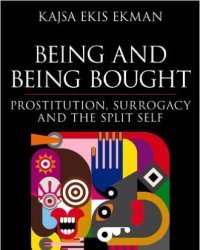
“This is a riveting analysis of prostitution and surrogacy that shatters the great wall of lies about these two institutions. Brilliantly analyzing the parallels, Kajsa Ekis Ekman wages a multi-pronged attack on sexism and classism that leaves the reader with hope for change.” Melissa Farley, PhD.
See: A brief history of the ‘Sex work is work’ movement
Paid For: My Journey Through Prostitution by Rachel Moran
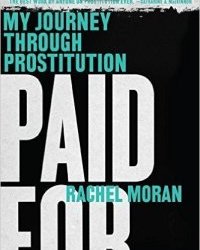
“The best work by anyone on prostitution ever, Rachel Moran’s Paid For fuses the memoirist’s lived poignancy with the philosopher’s conceptual sophistication. The result is riveting, compelling, incontestable. Impossible to put down. This book provides all anyone needs to know about the reality of prostitution in moving, insightful prose that engages and disposes of every argument ever raised in its favor.” Catharine A. MacKinnon
Last Girl First! Prostitution at the intersection of sex, race & class-based oppressions

A study into how all over the world and throughout history, women and girls from the most discriminated communities are over-represented in prostitution. Poor, Indigenous, migrant, asylum-seeking, displaced women, those from the lowest castes and from ethnic, religious and racial minorities are the first victims of pimps and sex buyer
Pimp State: Sex, money and the future of equality by Kat Banyard
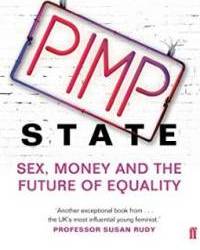
Skilfully weaving together first-hand investigation, interviews and the latest research, Pimp State powerfully argues that sex trade myth-makers will find themselves on the wrong side of history.
Prostitution Narratives: Stories of Survival in the Sex Trade edited by Melinda Tankard Reist and Caroline Norma

This book documents the reality of prostitution through the lived experience of women who have survived it.
Exit! by Grizelda Grootboom
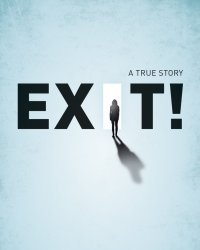
Grizelda Grootboom’s life was dramatically changed when she was gang raped at the age of nine by teenagers in her township. Her story starts there. It is a story about the cycle of poverty, family abandonment, dislocation and survival in the streets of Cape Town. She reveals the seedy and often demonised life of a prostitute and her ultimate escape from it.
Read our review >>
Body for Rent by Anna Hendriks and Olivia Smit

Childhood best friends Anna and Olivia were just 15 years old when they met Ricardo. He was older, charming and good-looking – and Anna and Oliva were easy prey. Manipulated, groomed and abused, within three years he had pimped the girls into the neon-lit windows of Amsterdam’s red light district.
Read our review >>
Shadow’s Law: The True Story of a Swedish Detective Inspector Fighting Prostitution by Simon Häggström
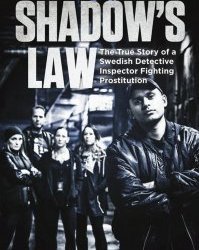
Detective inspector Simon Häggström is head of the Stockholm Police Prostitution Unit. He tells the true stories of the people he meets every day; young girls facing dangers they did not foresee, seven foreign women working and living together in a one bedroom apartment, Lovisa, born into a life of drugs and prostitution, and of course, the men who buy sex.
Not a choice, Not a job by Janice G Raymond

“This book dispels the smoke and mirrors and uncovers the horrific and complex truths of prostitution and the global sex trade. This is a must read for those who want to understand the facts about the harsh realities that so many experience.” Vednita Carter
The Pimping of Prostitution: Abolishing the Sex Work Myth by Julie Bindel
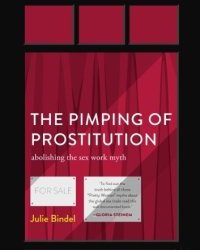
“Bold, brilliant and brave. This is Julie Bindel at her best, demolishing the myths around prostitution and asking us to listen to survivors, the women and men who know the ugly reality first-hand.” Joan Smith
The Nordic Model by Trine Rogg Korsvik and Ane Stø
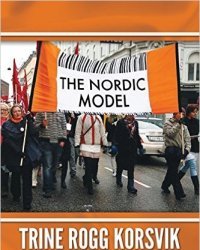
In this book, feminists activists write about their enduring struggle for the abolition of prostitution. The authors offer valuable insights into the movement’s strategies, as well as its allies and opponents. The book unmasks the pro-prostitution lobby and confronts the myth that the Nordic model is harmful to women in prostitution.
River of Flesh and Other Stories edited by Ruchira Gupta

Twenty-one stories about trafficked and prostituted women by some of India’s most celebrated writers: Amrita Pritam, Bibhutibhushan Bandyopadhyay, Indira Goswami, Ismat Chughtai, J. P. Das, Kamala Das, Kamleshwar, Krishan Chander, Munshi Premchand, Nabendu Ghosh, Qurratulain Hyder, Saadat Hasan Manto and Siddique Alam, among others.
Not for Sale: Feminists resisting prostitution and pornography edited by Christine Stark and Rebecca Whisnant
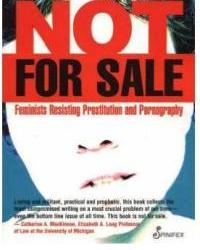
This collection of essays connect feminist perspectives on the sex industry with radical critiques of racism, poverty, militarism, and unbridled corporate capitalism, and shows how the harms of prostitution and pornography are amplified by modern technologies.
The Natashas: Inside the new global sex trade by Victor Malarek

They’re the third most profitable black market commodity, after illegal weapons and drugs. They are women and girls, some as young as 12. They are sold into prostitution and kept enslaved; those who resist are beaten, raped, and sometimes killed as examples. In many cases, the men who should be rescuing them –from immigration officials to police officers and international peacekeepers – are among their aggressors.
The Johns: Sex for sale and the men who buy it by Victor Malarek
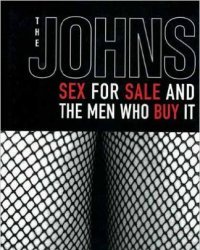
This book dispels the myths that justify prostitution and puts on display the rationales of ordinary johns, their beliefs, their behaviours, and their astounding brotherhood. It also shows us the darker side: the rise of sex tourism, the predators, the role of the Internet. Lambasting the pro-prostitution lobby, he explains why legalising prostitution can lead only to the greater enslavement of women.
The Industrial Vagina by Sheila Jeffreys

“This is an insightful analysis into the globalization and industrialization of the modern sex industry. Sheila Jeffreys makes the connections between prostitution, marriage, pornography, strip clubs, and sex tourism and how they all combine to exploit women who are most harmed. This book opens a window on global sexual exploitation and the institutions that support it.” Janice G. Raymond
The Idea of Prostitution by Sheila Jeffreys
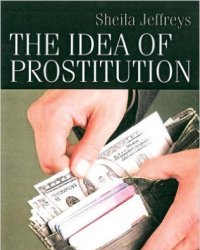
This book investigates the claims of the pro-prostitution movement and the burgeoning sex industry, arguing that the sex of prostitution is not just sex; the work of prostitution is not ordinary work; and prostitution is a choice for the men who abuse rather than for the prostituted women.
See The Idea of Prostitution: Q&A with Sheila Jeffreys and Rose Hunter.
And Life Continues: Sex Trafficking and My Journey to Freedom by Wendy Barnes

Wendy Barnes was introduced to sex trafficking by her first love, the father of her children. And Life Continues is her story: how she became a victim of human trafficking, why she was unable to leave the man who enslaved her for fifteen years, and the obstacles she overcame to heal and rebuild her life after she was rescued.
Pornography
Pornland: How porn has hijacked our sexuality by Gail Dines
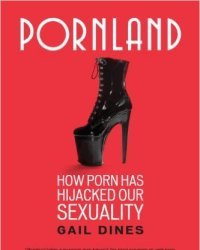
“Dines brilliantly exposes porn’s economics, pervasiveness, and impact with scholarship as impeccable as her tone is reasonable. This book will change your life. Ignore it at your peril.” Robin Morgan
He Chose Porn Over Me edited by Melinda Tankard Reist
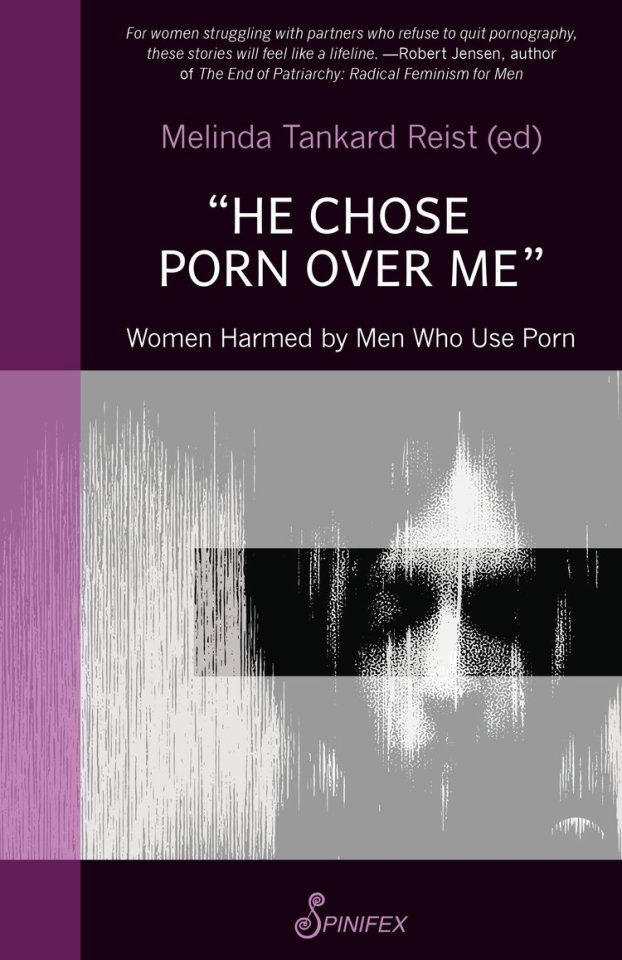
“Shattering the popular myth that porn is harmless, the personal accounts of 25 brave women in “He Chose Porn over Me” reveal the real-life trauma experienced by women at the hands of their porn-consuming partners – men who were supposed to care for them.”
Read our review >>
Your Brain on Porn by Gary Wilson
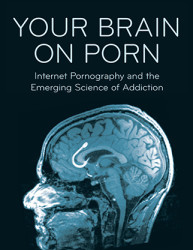
“Your Brain on Porn is written in a simple clear language appropriate for expert and layperson alike and is rooted firmly within the principles of neuroscience, behavioural psychology and evolution theory … As an experimental psychologist, I have spent over forty years researching the bases of motivation and I can confirm that Wilson’s analysis fits very well with all that I have found.” Professor Frederick Toates, Open University.
Read our review >>
Big Porn Inc: Exposing the Harms of the Global Porn Industry edited by Abigail Bray and Melinda Tankard Reist
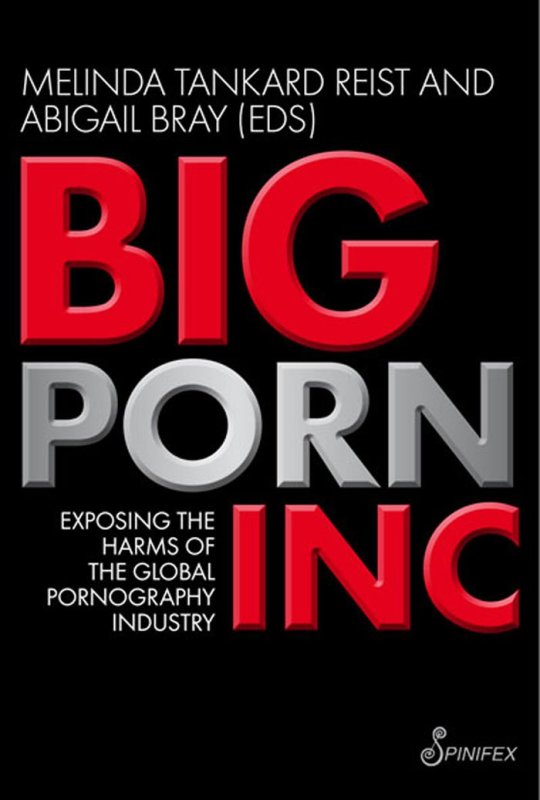
“With contributions from leading world experts and activists, Big Porn Inc offers a cutting edge exposé of the hidden realities of a multi-billion dollar global industry that promotes itself as a fashionable life-style choice.
“Unmasking the lies behind the selling of porn as ‘just a bit of fun’ Big Porn Inc reveals the shocking truths of an industry that trades in violence, crime and degradation. This fearless book will change the way you think about pornography forever.”
Getting Off: Pornography and the End of Masculinity by Robert Jensen
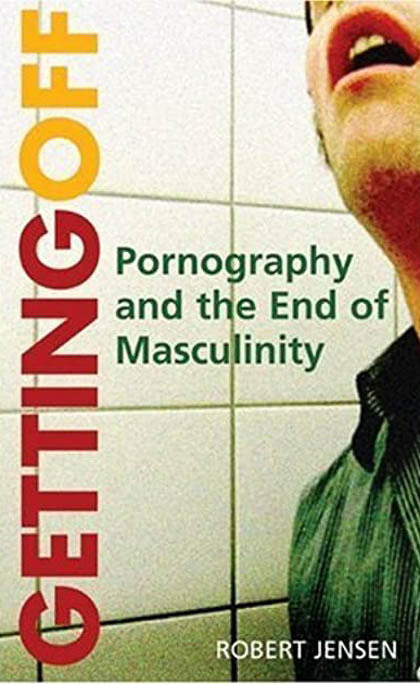
In our culture, porn makes the man. So argues Robert Jensen in Getting Off: Pornography and the End of Masculinity. Jensen’s treatise begins with a simple demand: “Be a man.” It ends with a defiant response: “I chose to struggle to be a human being.” The journey from masculinity to humanity is found in the candid and intelligent exploration of porn’s devastating role in defining masculinity. You can download a free PDF of this book from Robert Jensen’s website.
Surrogacy
Surrogacy: A Human Rights Violation by Renate Klein

A radical feminist introduction to the reality of surrogacy as the commissioning / buying / renting of a woman into whose womb an embryo is inserted and who thus becomes a ‘breeder’ for a third party and how it is being heavily promoted by the stagnating IVF industry which seeks new markets.
Towards the Abolition of Surrogate Motherhood edited by Marie-Josèphe Devillers and Ana-Luana Stoicea-Deram
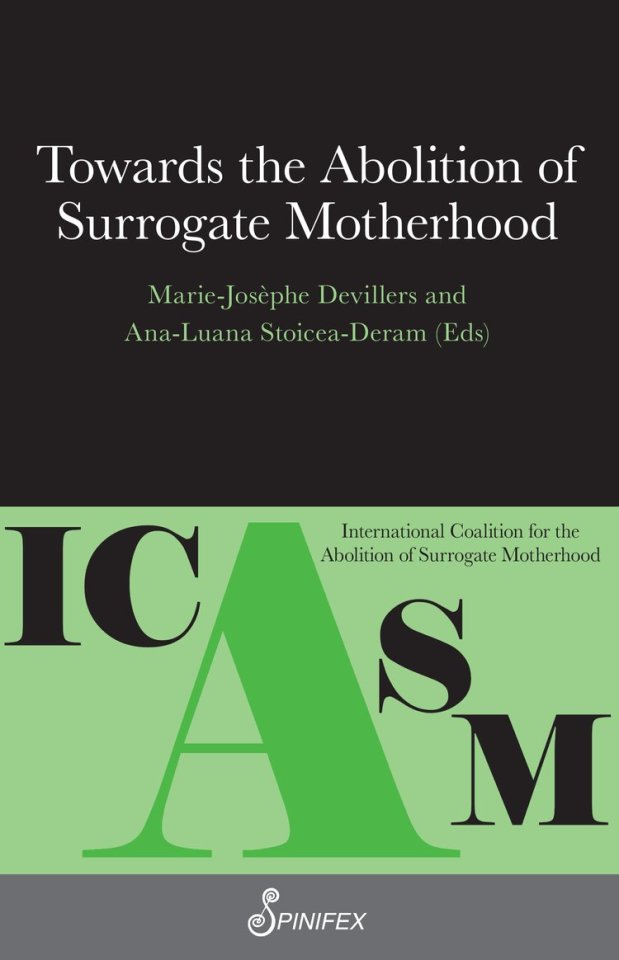
“In this eloquent and blistering rejection of surrogacy, a range of international activists and experts in the field outline the fundamental human rights abuses that occur when surrogacy is legalised and reject neoliberal notions that the commodification of women’s bodies can ever be about the ‘choices’ women make.”
Read our review >>
By and for men
The End of Patriarchy: Radical Feminism for Men by Robert Jensen
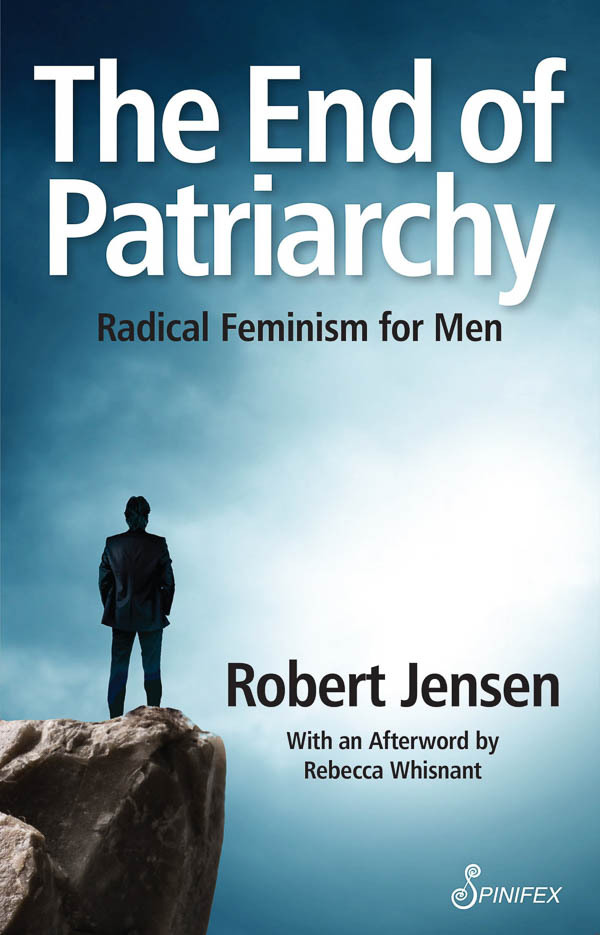
“The End of Patriarchy asks one key question: what do we need to create stable and decent human communities that can thrive in a sustainable relationship with the larger living world? Robert Jensen’s answer is feminism and a critique of patriarchy. He calls for a radical feminist challenge to institutionalized male dominance; an uncompromising rejection of men’s assertion of a right to control women’s sexuality; and a demand for an end to the violence and coercion that are at the heart of all systems of domination and subordination. The End of Patriarchy makes a powerful argument that a socially just society requires no less than a radical feminist overhaul of the dominant patriarchal structures.”
The Macho Paradox: Why some men hurt women and how all men can help by Jackson Katz
“With integrity and courage, Jackson Katz has taken his message – that the epidemic of violence against women is a men’s issue – into athletic terms, the military and frat houses across the country. His book explains carefully and convincingly why – and how – men can become part of the solution, and work with women to build a world in which everyone is safer.” Michael Kimmel.
Sex dolls
Sex Dolls, Robots, and Woman Hating by Caitlin Roper

“Sex Dolls, Robots and Woman Hating exposes the inherent misogyny in the trade in sex dolls and robots modelled on the bodies of women and girls for men’s unlimited sexual use. From doll owners enacting violence and torture on their dolls, men choosing their dolls over their wives, dolls made in the likeness of specific women and the production of child sex abuse dolls, sex dolls and robots pose a serious threat to the status of women and girls.”
The Macho Paradox: Why some men hurt women and how all men can help by Jackson Katz
“With integrity and courage, Jackson Katz has taken his message – that the epidemic of violence against women is a men’s issue – into athletic terms, the military and frat houses across the country. His book explains carefully and convincingly why – and how – men can become part of the solution, and work with women to build a world in which everyone is safer.” Michael Kimmel.
#Nordic model#Any Girl#Mia Döring#Body Shell Girl#Rose Hunter#The Sex Economy#Monica O’Connor#Being and Being Bought#Kajsa Ekis Ekman#Paid For: My Journey Through Prostitution#Rachel Moran#Last Girl First! Prostitution at the intersection of sex#race & class-based oppressions#Pimp State: Sex#money and the future of equality#Kat Banyard#Prostitution Narratives: Stories of Survival in the Sex Trade#Melinda Tankard Reist#Caroline Norma#Exit!#Grizelda Grootboom#Body for Rent#Anna Hendriks#Olivia Smit#Shadow’s Law: The True Story of a Swedish Detective Inspector Fighting Prostitution#Simon Häggström#Not a choice Not a job#Janice G Raymond#The Pimping of Prostitution: Abolishing the Sex Work Myth#Julie Bindel
9 notes
·
View notes
Text
When Murder Comes Home by Shana Frost
When Murder Comes Home (Aileen and Callan Murder Mysteries Book 1) by Shana Frost “When Murder Comes Home” unfolds in the serene Scottish Highlands, where Aileen Mackinnon, a former forensic accountant, joins forces with local Detective Inspector Callan Cameron to solve a series of chilling murders. As tensions escalate, they forge an unlikely partnership, navigating betrayal, deceit, and the…

View On WordPress
0 notes
Text




More Cozy Holiday Mysteries
In the Wick of Time by Valona Jones
December in Savannah, Georgia, is a sight to behold. With all the festivities - including the traditional riverfront luminary display - twin sisters Tabby and Sage Winslow are busier than ever setting up for the big celebration. But that isn’t the only thing on the sisters’ minds. Both Sage and her fellow employee Mary Nicole are vying for the sought-after assistant manager job at the plant nursery. But when Loren Lee, their boss, is found dead, and Sage becomes the police’s favorite suspect, both Winslow girls know that they’ll need more than a flicker of magic and their sisterhood to solve the murder and clear Sage’s name.
This is the second volume of the "Magic Candle Shop Mystery" series.
Mrs. Jeffries and the Midwinter Murders by Emily Brightwell
Harriet Andover was a smart businesswoman who did not suffer fools gladly, yet somehow her house was full of them. While Harriet had every intention of putting her family back on the path to respectability, her ambition was cut short upon being strangled inside her mansion with a house full of holiday guests. It would seem that everyone present had a motive to kill the rich woman, but Inspector Witherspoon and housekeeper Mrs. Jeffries won't rest until they’ve delivered a stocking full of coal to the crafty killer.
This is the 40th volume of the "Mrs. Jeffries" series.
The Christmas Appeal by Janice Hallett
The Christmas season has arrived in Lower Lockwood, and the Fairway Players are busy rehearsing their festive holiday production to raise money for a new church roof. But despite the season, goodwill is distinctly lacking among the amateur theater enthusiasts, not to mention the matter of the dead body onstage. Who could possibly have had the victim on their naughty list? Join lawyers Femi and Charlotte as they investigate Christmas letters and pore over police transcripts to identify both victim and killer before the curtain closes on their production - for good.
This is a novella in "The Appeal" series.
The Twelve Books of Christmas by Kate Carlisle
In the middle of a wonderful Christmas holiday in Dharma, Brooklyn and Derek receive a frantic phone call from their dear friend Claire in Loch Ness, Scotland. The laird of the castle, Cameron MacKinnon, has just proposed to her! They plan to be married on New Year’s Day, and they want Derek and Brooklyn to be their witnesses. And while they’re visiting, Claire hopes that Brooklyn will be able to solve a little mystery that’s occurred in the castle library - twelve very rare, very important books have gone missing.
This is the 17th volume of the "Bibliophile Mystery" series.
#cozy mystery#holiday reads#reading recommendations#reading recs#book recommendations#book recs#library books#tbr#tbr list#to read#booklr#book tumblr#book blog#library blog#readers advisory
1 note
·
View note
Photo




You do have a cause though, don’t you? I’d say that’s pretty much the same thing.
Lewis s2 ep3, “Life Born of Fire”
#lewis#inspector lewis#robbie lewis#kevin whately#bruce mackinnon#british detectives#british tv#british crime#gif
18 notes
·
View notes
Photo




Sherlock | The Final Problem
The remarkable acumen by which Sherlock Holmes Inspector MacKinnon deduced from the smell of paint that some other smell, that of gas, for example, might be concealed, the bold deduction that the strong-room might also be the death-chamber, and the subsequent inquiry which led to the discovery of the bodies in a disused well, cleverly concealed by a dog-kennel, should live in the history of crime as a standing example of the intelligence of our consulting professional detectives. (The Retired Colourman)
#Sherlock#TFP#ACD#The Retired Colourman#the well#Redbeard#John Watson#subtext#fresh paint to hide another smell#some day the true story may be told#strikethroughs are mine#but true to the text#canon shorts
55 notes
·
View notes
Text
Death of a Whistleblower
Questions raised by a Pentagon investigator went unanswered following his workplace suicide.
Although whistleblowers are protected under the law, they often face retaliation, demotion or the loss of their livelihoods which can take a profound toll, raising the age-old question: Who watches the watchdogs?
— By Amy Mackinnon | MARCH 20, 2020 | Foreign Policy
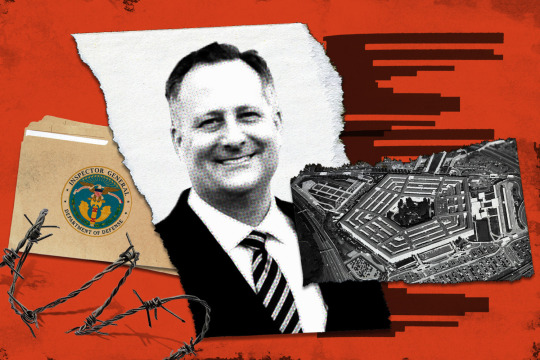
It’s almost not possible to overstate how large and complicated the United States Department of Defense is. It is the largest U.S. government agency, serves as the country’s biggest employer, and wields an annual budget of $738 billion. The task of detecting and deterring malfeasance within this labyrinth falls to the Pentagon’s Office of the Inspector General. Each year, the watchdog’s hotline receives some 14,000 complaints from Department of Defense employees, many of whom make grave allegations of criminality, fraud, or waste of government resources.
When credible allegations were made against senior officials, they landed on the desk of Steven Luke, one of around 30 investigators tasked with handling probes into some of the highest-ranking officials in the Pentagon. Having worked in the office for over a decade, Luke was well acquainted with the Washington swamp. He enjoyed his job, and he was good at it. But in January 2018, Luke was handed a case that caused him to question the integrity of his office and the motives of his supervisors, and led him to blow the whistle on the Pentagon’s own watchdog office.
At first glance, the case should have been relatively straightforward. Robert Cardillo, who was then the head of the National Geospatial-Intelligence Agency, had been accused of violating agency travel protocols. Luke had handled plenty of similar cases over the years, and travel investigations often left a paper trail.
He reviewed the evidence and felt that it was too thin to substantiate the claims. But in a series of emails obtained by Foreign Policy, Luke described how he felt under pressure from his supervisors to back up the allegations made against Cardillo. “From the outset, everyone in my leadership chain suggested or directed that I should substantiate the primary allegation,” he wrote in an email to the office of Sen. Chuck Grassley, the Iowa Republican known as the “patron saint of whistleblowers.” “I felt bullied, berated, and belittled unless I acquiesced to go along with everyone else and write the ROI [Report of Investigation] as a substantiation,” Luke wrote.
The case was ultimately closed as unsubstantiated, but the experience left Luke rattled.
If you are in crisis or are worried about a friend or loved one, the National Suicide Prevention Lifeline network is available 24/7 across the United States. Call 1-800-273-8255, or visit www.suicidepreventionlifeline.org for options in Spanish and for those who are deaf or hard of hearing.
He felt sure that had he not stuck his neck out, the case would have been upheld, leaving an indelible stain on Cardillo’s decadeslong record of government service. His wife, Amy Luke, said that it was the worst work-related stress she had ever seen him under. He was frustrated, preoccupied, and beginning to look for other jobs.
After the case was closed, Luke wrote a two-page email outlining his concerns to Charles Murphy, an investigator in Grassley’s office. They arranged to meet on Feb. 4, 2019.
But Luke never made it to the meeting.
On Jan. 8, 2019, he was found dead in the trunk of his red Volvo S60 in the parking garage of the Mark Center office building, home to the Pentagon’s Office of the Inspector General. An Alexandria police department investigation concluded that Luke—a father of four who had been stalked by depression throughout his adult life—had killed himself. He was 54 years old.
Jon Benedict For Foreign Policy
Last year, a whistleblower complaint by an anonymous CIA official set off a chain of events that culminated in the impeachment of U.S. President Donald Trump. It underscored the remarkable power of whistleblowing, as well as the enormous pressure that can come to bear on those who speak out, as the president and his allies doubled down in their efforts to expose the complaint’s author.
Each year, tens of thousands of government employees come forward to report misconduct. They play a pivotal role in holding the government to account and have saved taxpayers billions of dollars. Most whistleblowers do not imperil a presidency. Few ever make the news. The reality of whistleblowing is often different, and much darker, than the David and Goliath portrayal that has long captured imaginations in Hollywood. Having stumbled upon nepotism, corruption, vested interests, or political agendas, many are simply crushed by the powerful interests they are trying to expose. Whistleblowers are protected under the law, but they often face retaliation, demotion, or the loss of their livelihoods, which can take a profound toll: “There is a burgeoning field of research on whistleblower retaliation and a hostile work environment that causes stress-related disorders, such as PTSD, depression and suicide along with a host of physical disorders such as autoimmune diseases, musculoskeletal, and gastrointestinal,” said Jacqueline Garrick, the founder of the nonprofit Whistleblowers of America, in an email to Foreign Policy. In a poll of 100 whistleblowers run on the organization’s website, 50 percent of respondents said they had some thoughts of suicide during the whistleblowing process, Garrick said. “There is a burgeoning field of research on whistleblower retaliation and a hostile work environment that causes stress-related disorders, such as PTSD, depression and suicide.”
In writing to Grassley’s office, Luke was in the early stages of becoming a whistleblower himself. Allegations he made in a series of emails exchanged with Grassley’s office raise serious questions about the Pentagon’s Office of the Inspector General, where officials have previously been accused by lawmakers and independent watchdogs of exerting undue influence in investigations of senior officials and of presiding over a “toxic” environment for whistleblowers. “The tragic suicide of Steven Luke may be part of a long-standing pattern of alleged investigative misconduct, retaliation and bullying in the directorate where Luke worked. This abusive culture has apparently been allowed to exist unchecked for far too long,” Grassley said in a statement to Foreign Policy. “Those responsible must be held accountable.” Grassley added that acting Inspector General Glenn Fine “needs to address this problem without further delay.”
Responding to Grassley’s statement, Dwrena Allen, a spokeswoman for the inspector general’s office, wrote, “This statement raises inaccurate allegations and unfairly makes inferences that are simply not supported by facts.” Allen referred Foreign Policy to the latest Federal Viewpoint survey of government employees, which showed significant improvements over recent years in the way employees of the Office of the Inspector General regard their workplace. “[T]he scores in Steven’s office on this survey (consistently over 90%) are much higher than in the federal government and the Department of Defense as a whole, and they demonstrate that there is not an abusive culture,” she said in a statement.
In 2015, 56 percent of employees at the Office of the Inspector General felt that they could make a disclosure about suspected wrongdoing without fear of reprisal, below the government-wide average. By 2019, 73 percent of agency staff said that they felt they could blow the whistle without facing retaliation, higher than the average across the government.
The Pentagon’s Office of the Inspector General is a “shop that’s had a lot of problems for a long time,” said Mandy Smithberger of the Project on Government Oversight, a good governance watchdog. As far back as 2002, a review by an external independent contractor found that “The culture of the OIG DoD has been, and continues to be, hostile to internal whistleblowers. All too often, OIG employees who have endeavored to identify mismanagement or violations of law have been punished by their chain of command.” This was echoed 14 years later in a letter from the Project on Government Oversight to Fine, the acting inspector general, that described the office as having a “cultural aversion” to whistleblowers.
“There is a lot of pressure there not to even open cases,” said Garrick of Whistleblowers of America. “I’ve not seen anybody that I can think of off the top of my head who has gone to the DoD OIG and even had a case get opened.”
Allen, the spokeswoman for the inspector general’s office, described these comments as inaccurate, saying, “There is no pressure to reach any particular outcome on a case—other than to take the facts and evidence wherever they lead and to ensure the investigations and reports are well supported, well explained, and factually correct. That is what happened in the case discussed in the article, and what happens in our other cases as well.”
“There is no pressure to reach any particular outcome on a case—other than to take the facts and evidence wherever they lead.”
A spokesman for Grassley estimated that the senator’s office had been contacted by dozens of whistleblowers from within the Pentagon’s inspector general office over the last decade. “There have been concerns for a long time about the treatment of whistleblowers, certainly hostility toward internal and external whistleblowers,” Smithberger said. She added that it wasn’t necessarily unusual to see so many whistleblowers come forward from a watchdog office, as they are likely more aware of what their rights are than other government employees.
Allen declined to comment on past concerns raised about the inspector general’s office, describing the allegations as “not fully accurate” and “dated.” She said that the Administrative Investigations division where Luke worked had made numerous improvements since 2016, stepping up the timeliness of investigations, reallocating significant resources to the office, and increasing staff numbers. She pointed to a 2018 report from the Project on Government Oversight recommending that the inspector general’s alternative dispute resolution initiative, which uses mediation as a means of resolving complaints instead of lengthy investigations, be considered for implementation at other large offices of inspectors general.
In a 2017 speech, Grassley raised concerns that senior managers in the Pentagon inspector general’s office had, “allegedly been tampering with investigative reports and then retaliating against supervisory investigators who call them to account.” In the same speech, he took the office to task for its backlog in processing whistleblower tips that come in through the agency’s hotline. One of the sharpest critics of the inspector general’s office, Grassley later commended it for reducing the backlog in a 2019 speech, describing it as “a glimmer of hope in an otherwise swamp of secrecy.”
Previous whistleblowers who have come forward from the Office of the Inspector General have alleged that there had been pressure in politically sensitive cases not to stand up allegations made against senior officials. What is different about the claims made by Steven Luke is that he instead seemed to feel pressure to substantiate a case in which he didn’t feel the evidence held up.
It’s not clear whether any senior officials at the Pentagon’s inspector general office sought to influence Luke’s investigation into Cardillo or why. Nor is it apparent from his emails who he allegedly felt under pressure from to substantiate the investigation. Allen denied that there had been any improper influence on the outcome of the case.
In emails to Grassley’s office, Luke said that the then-Secretary of Defense James Mattis had taken a personal interest in Cardillo’s case and speculated that Mattis may have been planning to move or promote the geospatial intelligence chief. “Honestly, it really bothers me—as a human being—that this gentleman’s long and distinguished career would have ended based on a group think ROI [Report of Investigation] had it not been for my willingness to say to my supervisors, ‘No, this isn’t right,’” he wrote.
Cardillo confirmed to Foreign Policy that he had been the subject of an inspector general investigation into two alleged violations of travel standards, and he confirmed that he’d met with Luke during his investigation. He was not aware whether or not he was being considered for a more senior appointment by Mattis. Through a spokesperson, Mattis declined to comment on this story.
Seventy-four offices of inspectors general operate across the U.S. government, and they are often the first port of call for federal employees looking to report allegations of wrongdoing. Luke’s claims of alleged misconduct within the Pentagon’s watchdog office cut to the heart of an age-old dilemma of who watches the watchmen.
Luke’s claims of alleged misconduct within the Pentagon’s watchdog office cut to the heart of an age-old dilemma of who watches the watchmen.
“I often say that IGs, the overseers of agencies, need to be as pure as driven snow, because if they are not, all of their work is tainted,” said Rep. Gerry Connolly during a hearing of the House Oversight Committee in September 2019. Luke’s emails to Grassley’s office raise significant questions about conduct within the inspector general’s office, questions that went unanswered after his death, which is reported here for the first time. Did Steven Luke face any undue pressure regarding Cardillo’s case? Was he “bullied” by his supervisors to substantiate the claims? Was someone looking to use the case to smear Cardillo, as Luke feared?
A Freedom of Information Act request by Foreign Policy revealed that the watchdog did not conduct an internal investigation into Luke’s death. Grassley’s office halted its investigation of the claims upon the advice of counsel as Luke’s death was investigated by law enforcement.
Experts caution against trying to pinpoint a single cause in cases of suicide. “Suicide is complex, and there are many factors that contribute—it’s never just one single factor,” said Jill Harkavy-Friedman, a clinical psychologist and the vice president of research at the American Foundation for Suicide Prevention. “What happens is when somebody has a stress or multiple stresses it can look like that was the cause, but we don’t know what the person brings to it in terms of any risk factors and vulnerability.” Harkavy-Friedman noted that around 60 percent of people who die by suicide are known to have depression at the time of their death.
Luke’s wife said that his supervisor was aware of her husband’s mental health history and had been very supportive over the years. Allen, the spokeswoman for the inspector general’s office, said, “Mr. Luke was a part of a close office that supported him over the years with personal and caring help when he needed it, both in and outside the workplace. His OIG colleagues—employees, supervisors, and leadership alike—were heartbroken when we learned that Mr. Luke succumbed to his illness.”
Luke had previously attempted to take his own life, and his wife, Amy, worried that it was only a matter of time before he would reach that point again. But she does fear that it was hastened by stress he faced at work. “If they would have just let him do what he’s supposed to do in the job, he would have not been in that darkest place that he ended up being. But I think he eventually would have,” she said. The weekend before his death, Luke had seemed overwhelmed. “He just was dissolving. His mind was just not functioning right,” Amy Luke said.
The living room of the Luke family home in Stafford, Virginia, is adorned with photographs and mementos of all that the Lukes held dear: Texas roots, family, and their Mormon faith. Beneath a photo of the Lukes with their four children, the youngest of whom is now 16 years old, is a long drop-leaf table that has been turned into a memorial to Steven Luke’s life: A graying plush Snoopy from his childhood in Lubbock, Texas. An award he received in 2015 for “Investigation of the Year” in his department of the Office of the Inspector General. The bullet casings from the three-volley salute fired at his funeral.
Luke joined the inspector general’s office in 2008 after retiring from a 20-year career in Air Force intelligence. With a staff of more than 1,500 members, the office is responsible for detecting and deterring unscrupulous behavior that can gather in the corners of the Department of Defense. It’s this kind of work that makes it one of the highest-stakes watchdog offices in the federal government, according to Irvin McCullough of the whistleblower advocacy group the Government Accountability Project. “The DoD OIG is also conducting many, many sensitive investigations, some of which are still properly classified, on extraordinarily sensitive programs,” McCullough said. Luke worked in the Investigations of Senior Officials directorate, a subcomponent of the inspector general’s office that investigates allegations leveled against some of the most senior figures, both military and civilian, within the Department of Defense. In 2019, the office was tasked with investigating then-acting Secretary of Defense Patrick Shanahan himself. The allegations were not substantiated.
Working hard had become a form of self-medication for Luke, a way to stave off the depression that weighed heavily on him—Amy Luke, his wife of 33 years, recalled him saying, “I work so hard so people don’t think there’s something wrong with me.” Amy said her husband had long been motivated by a strong sense of justice. In his email signature he included a quote sometimes attributed to the German writer Johann Wolfgang von Goethe, “You can easily judge the character of a man by how he treats those who can do nothing for him.”
At work he had a reputation among colleagues for being diligent, uncompromising. He had a “high level of attention to detail, very committed to sticking with an investigative plan,” said Daniel Meyer, who previously served as director for whistleblowing and transparency at the Pentagon inspector general’s office. “He really didn’t try to read what his boss wanted. He just presented his work as he found it,” Meyer said. These were useful characteristics to have in an investigator, but it made it all the more difficult when Luke came up against what he felt was wrongdoing by his own supervisors. Meyer, who went on to serve as the executive director of intelligence community whistleblowing and source protection, said that whistleblowers or investigators who have an unyielding approach to wrongdoing can be challenged most when they’re confronted with it in their own office.
“The folks who have the hardest time are the whistleblowers or investigators who see a rule, and they see it violated, and they expect there to be a response to that.”
“The folks who have the hardest time,” Meyer said, “are the whistleblowers or investigators who see a rule, and they see it violated, and they expect there to be a response to that.” He added that there was often an issue of “emotional intelligence” and “resilience” among whistleblowers: “[W]e used to study and watch those two qualities carefully in the IG, when I worked with Steve and the other investigators.”
Meyer himself had blown the whistle on the inspector general’s office in 2016, alleging that they had watered down an investigation into whether former CIA Director Leon Panetta had revealed classified information about the raid on Osama bin Laden’s compound to the screenwriter who wrote the script for Zero Dark Thirty, a film about the raid.
In late January 2018, Luke was handed the case that would ultimately prompt him to go from watchdog to whistleblower and approach the office of Grassley, whose staff have handled a number of whistleblower complaints about the Pentagon’s Office of the Inspector General. It wasn’t the first time Luke had contacted the office. In 2013, he reached out to report concerns about the length of time it took for investigative reports to be reviewed by senior leaders in his office and by the agency’s general counsel, but he never followed up.
In a two-page email sent on Dec. 17, 2018, Luke detailed how he felt bullied and increasingly isolated as he sought to resist efforts by his supervisors to substantiate the claims made against Robert Cardillo, who stepped down as director of the National Geospatial-Intelligence Agency in February 2019 as part of a scheduled departure. In the email, Luke dispassionately recounts how, after examining the evidence, he advised his bosses that he did not see a “slam dunk” violation of the agency’s rules regarding travel. His supervisors, according to Luke, felt differently. “Over a period of several months, I was pressured and bullied to write the ROI [Report of Investigation] in such a fashion that it would conclude as a ‘substantiation.’”
Luke describes how he found himself excluded from meetings about the case even though he was the lead investigator. When he complained, he received his first ever letter of counseling, a letter from his supervisors detailing what they saw as unacceptable behavior. “I began to believe that my exclusion from internal meetings was because I was the lone voice that insisted the evidence led to a non-substantiation,” he wrote.
In a subsequent email, Luke alleged that a few months into the probe, Marguerite Garrison, the head of his division, told him she was briefing acting Inspector General Fine that they planned to substantiate the claims against Cardillo. In response to questions from Foreign Policy, Allen, the spokeswoman for the Office of the Inspector General, said that it was not uncommon for senior officials to advise the inspector general about the status of an investigation. She added Luke had not included exculpatory evidence in his initial draft report and, at the time, it looked as if the case was set to be substantiated.
Garrison’s handling of cases has previously drawn scrutiny from Grassley. In speeches on the Senate floor in 2016 and 2017, Grassley singled her out when he accused the department’s leaders of having “doctored” an investigation in favor of a rear admiral accused of retaliating against subordinates he suspected of being whistleblowers. He said Garrison allegedly wrote a letter to the rear admiral, clearing him of any wrongdoing before the investigation had been finalized. “To conform with the Garrison letter, the findings in the draft report had to be allegedly changed from substantiated to not substantiated. The investigators dug in their heels and stood their ground,” Grassley said in the 2016 speech.
Allen described these allegations as inaccurate, adding, “Rear Admiral Losey had five separate reprisal investigations opened against him, three of which were found to be substantiated by the OIG. In the first of the other two cases, Rear Admiral Losey was not substantiated against for reprisal, and in the second case, to which Senator Grassley referred, Rear Admiral Losey was removed as the subject of that case because the evidence developed in the investigation showed that the prohibited personnel action was taken by the other alleged subject.”
By August 2018, after months of feeling “pressured and bullied,” Luke acquiesced and told his supervisors that he would write a report substantiating the claims, but only if all of the exculpatory evidence could be included in the final report. If it were deleted, he would complain to Congress.
It was at this point that the pressure began to ease. Luke started to feel like his leadership had begun to take his draft report seriously. According to his email to Grassley’s office, he shared it with four colleagues, senior investigators who were not involved in the case, for a cold read. All reached the same conclusion that the primary allegation against Cardillo did not stand up. Ultimately, the case was closed as unsubstantiated and, according to Luke’s email, was hand-delivered to Mattis, the then-secretary of defense, on Nov. 30, 2018.
“I take no joy in doing this. I like my co-workers. However, our ISO [Investigations of Senior Officials] process is broken and no one here is willing or able to change it,” he wrote in a later email.“I take no joy in doing this. I like my co-workers. However, our ISO [Investigations of Senior Officials] process is broken and no one here is willing or able to change it,” he wrote in a later email.
Allen declined to comment on the facts and circumstances surrounding the case, or on Luke’s perceptions of how it was handled. “Mr. Luke was involved in professional discussions with his supervisors where they sought to confirm that there was sufficient evidence to support Mr. Luke’s proposed outcome in the case,” she said. “Mr. Luke’s supervisors ultimately reviewed the evidence collected by Mr. Luke, found the information in Mr. Luke’s files to support the conclusions in the report, and the report was issued with all relevant evidence, in accord with Mr. Luke’s initial conclusion about the case.”
In the days before Luke died, internal Office of the Inspector General emails obtained by Foreign Policy show that he informed his bosses of his plans to meet with Murphy, the investigator in Grassley’s office, regarding their handling of the Cardillo investigation, which by that point had been closed. Emails also show his supervisor informed him that he could use official time for the meeting.
On Monday, Jan. 7, Fine, the acting inspector general of the Department of Defense, wrote to Luke and offered to meet with him to talk through his concerns. Luke replied the next day to say he would be happy to meet that morning. It is unclear whether the meeting ever took place. Later that day, when Luke failed to return home at the usual time, his wife raised the alarm. His body was found later that evening.
Following in the footsteps of his father, Luke joined the U.S. Air Force in 1988, drawn by a desire to serve his country and a love of travel. His work in Air Force intelligence took the family around the world, from South Korea to Panama to Spain and Germany, but wherever they went, Luke’s depression followed. For years he resisted seeking help for his mental health, fearing that it could put his security clearance and by extension his job at risk. It was only some 15 years into his Air Force career that he was placed on medication that helped to alleviate some of his symptoms. But years of missed treatment had already taken a toll, further entrenching his depression, Amy Luke said.
Only a tiny number of security clearances are denied or revoked because of mental health, according to the Department of Defense. Between 2006 and 2012, only one in every 35,000 people either applying for the first time or looking to maintain their security clearance was denied because they disclosed a history of mental health issues, a message military leaders have tried to drive home. But Elspeth Cameron Ritchie, a former Army psychiatrist, said that the stakes of losing a security clearance have long held service members back from seeking help. “Say you’ve been in the military for 10 to 15 years. Losing your clearance means losing your job—that means losing your health care. It also means losing your housing and losing your retirement,” said Ritchie, who at the time of her retirement from the military in 2010 served as the director of proponency of behavioral health in the Office of the Army Surgeon General. Added to that is the stigma attached to seeking help, “It’s a concern about what your buddies will think, concern that you won’t be found fit for duty,” Ritchie said.
“I don’t think Steven’s death can be attributed directly to this case or to the atmosphere at work or from anyone’s actions or inactions.”
The one thing that offered Luke a temporary release from his depression was speaking Spanish, Amy Luke said. After graduating high school, Luke spent 18 months in the Dominican Republic as a missionary. He went on to complete a degree in Spanish at the University of North Texas. “It’s like he could compartmentalize the depressed Steven from the Spanish-speaking Steven,” Amy said. He tried to instill his love of the language in their four children, buying them books and Disney films in Spanish.
Five months after her husband died, Amy Luke wrote to his former colleagues, explaining his history of depression. “There was not anything that could have been said or done to have changed the outcome. I know, I tried to save him from his suicidal thoughts for thirty-three years,” she wrote in the letter. It was signed off with a red heart.
In response to questions from Foreign Policy, the Office of the Inspector General reached out to Steven Luke’s wife for comment, which Allen included in the agency’s response. Amy Luke said, “I know that Steven’s peers and his leadership were thoughtful, professional, and caring when it came to the depression he experienced. He suffered from a pervasive and profound depression that he lived with for most of his life. Unfortunately, the suicidal ideation that often accompanies this kind of depression can be deadly, as was the case with Steven. I don’t think Steven’s death can be attributed directly to this case or to the atmosphere at work or from anyone’s actions or inactions.”
On Jan. 15, 2019, Steven Luke was buried amid the neat rows of granite headstones in Quantico National Cemetery in Virginia. On a recent Saturday afternoon, the only sound to disturb the silent repose of the cemetery was a light breeze that whispered through a nearby thicket of trees and rippled the miniature American flags planted in the earth.
Amy Mackinnon is a staff writer at Foreign Policy. Twitter: @ak_mackForeign Policy Magazine
0 notes
Photo

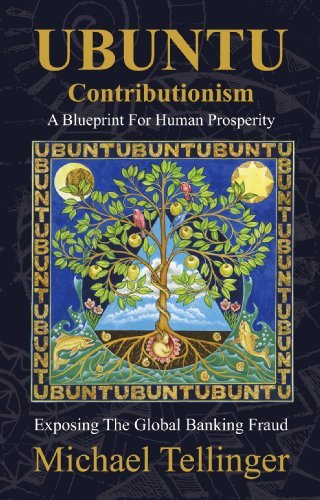
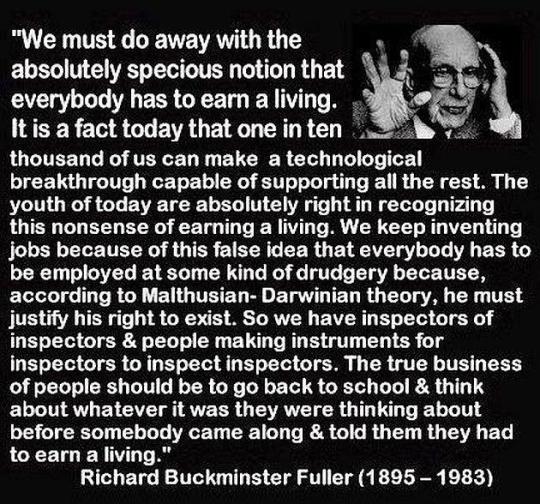

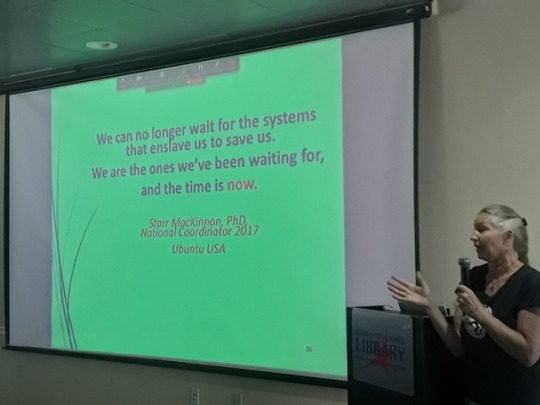
Walking Within Wisdom #14 September 2, 2019
“Money does nothing, PEOPLE do EVERYTHING!” ~Michael Tellinger, Ubuntu Contributionism
Last week I walked a total of 32.96 miles and swam 7,500 meters (a slow week for me) AND BOY did I learn a TON!!! Overall I think this walking thing is working ;-)
So although I was not walking during this wisdom presentation yesterday, this subject and work is NEVER far from my mind… Instead of Walking Within Wisdom I may have to re-title this particular segment DRIVING LONG DISTANCES WITHIN WISDOM as it took me two and a half hours (I would have driven further btw) to get from Denver to Pueblo (Colorado) to listen to my dear friend Rebecca Gretz present about “Ubuntu Contributionism: A New (NON)Economic Paradigm”
Some of you may know that I have been spending a good deal of time in Walsenburg Colorado. My work there is based on the ideas/values of Ubuntu and contributionism and last year we purchased an 1898 School House (pictured here), started growing food, chickens and started collaborating with the community to lay the groundwork for this new paradigm.
If I haven’t talked your ear off about this work and would like to know a bit more please see this short video that talks about the movementhttp://bit.ly/onesmalltown
There have been ups and MANY downs in the past year and despite all of that we are still working on it!
Although we tried to record Rebecca’s presentation, sadly it didn't work out that way. So I am going to do my best to recap Rebecca’s wisdom with some of her slides and images...
Rebecca started off with a question:
Are you happy with the way the world is now?
There was all sorts of feedback from the audience, for the most part, the answer was a resounding no…
Rebecca went on to describe…
IMAGINE… •a world without the need for money. •a world where you do what you love to do everyday. •a world in which everyone uses their natural talents and acquired skills for the benefit of all in the community. •a world where there are no boundaries to progress in any area including energy, healthcare, science and the arts. •a world without strife, famine, war, and disease. That is UBUNTU CONTRIBUTIONISM!
The next question… Why imagine a world without MONEY?
WELL…
•Money is an artificial framework-an intermediary that comes between people and the resources they need to survive •Money, or the lack thereof, causes stress, depression, anxiety and sickness for individuals and families. •Money is used to destroy the environment and deplete planet resources •Money is used as a tool to enslave the masses. •Jobs, often, do not match the talents and interests of the people •The need for money puts a barrier between people’s desire to pursue their passions and the means for survival (i.e. starving artist) •The need for money interferes with people’s access to resources to achieve their goals (i.e. business, education, healthcare, charities, research)
These ideas are far from new, new age or just coming from crazy people like me. Buckminster Fuller was talking about these ideas 50 years ago, in 1970 Fuller said,
“We should do away with the absolutely specious notion that everybody has to earn a living. It is a fact today that one in ten thousand of us can make a technological breakthrough capable of supporting all the rest. The youth of today are absolutely right in recognizing this nonsense of earning a living. We keep inventing jobs because of this false idea that everybody has to be employed at some kind of drudgery because, according to Malthusian Darwinian theory he must justify his right to exist. So we have inspectors of inspectors and people making instruments for inspectors to inspect inspectors. The true business of people should be to go back to school and think about whatever it was they were thinking about before somebody came along and told them they had to earn a living.” R. Buckminster Fuller
So you probably want to know, what is UBUNTU? Ubuntu is a word from South Africa meaning: I am who I am because of who we ALL are. Basically the most collaborative word on the planet...
A person with Ubuntu is open and available to others, affirming of others, does not feel threatened that others are able and good. They have self-assurance that comes from knowing that they belong to a greater whole. They are diminished when others are humiliated or diminished, or when others are tortured or oppressed.
Rebecca then showed this image of beautiful children in a circle and told the story of an Anthropologist in Africa...
An anthropologist proposed a game to the kids in an African tribe. He put a basket full of fruit near a tree and told the kids that who ever got there first won the sweet fruits. When he told them to run they all took each others hands and ran together, then sat together enjoying their treats. When he asked them why they had run like that as one could have had all the fruits for himself they said: “UBUNTU, how can one of us be happy if all the other ones are sad?”
THIS IS THE WORLD I CHOOSE TO LIVE IN…
SO what is Ubuntu contributionism you may ask???
IT IS:
•A blueprint for a new social structure envisioned by Michael Tellinger. •It is an actual “plan of action” that outlines the steps necessary to achieve abundance for all.
Michael (and we all) ask that you keep an open mind .... These concepts are foreign to most of us who have been raised in a capitalistic, oligarchic society...
In his blueprint Michael even outlined a five point mantra
1. No money 2. No barter 3. No trade 4. No value attached 5. Everyone contributes their natural talents and acquired skills for the greater benefit of everyone in the community
So you may wonder why no barter and trade… Barter and trade continues the system that something has more (or less) value than something else and thus just replacing money with things. This also goes for using a different form of currency like bitcoin.
I also want to insert here, please don’t misunderstand, we are not all Pollyanna (well maybe I am) we understand we will need to continue to need money, barter and trade as a bridge as we are literally building the wings of the plane just before we take off… These ideas and movement takes time.
Rebecca Gretz went on to talk about Ubuntu basics, some of the work we have (and haven’t yet) been doing in Walsenburg. What kinds of talents and skills we are looking for in this first phase and:
We want to invite all inventors, healers, scientists, artists, food growers, etc, to our community–without funding limitations or need for profit, they will come up with new cures, technologies, etc. Other cities and towns will want to establish this for themselves when they see how successful our community is. It will be a domino effect that changes the world…
She then concluded with a quote from the former Former National Coordinator for Ubuntu USA
“We can no longer wait for the systems that enslave us to save us.We are the ones we’ve been waiting for, and the time is now.” ~Starr MacKinnon, PhD,
OF COURSE there was much much more here, my Ubuntu brothers added to the wonderful conversation and I even talked about how I got involved. I would be happy to talk to anyone who would like to know more AND
If you would like to learn more:
Read the book Ubuntu Contributionism by Michael Tellinger Go to our friend Michael E. V. Knight channel moneydoesnothing.com Look at any of the Ubuntu Facebook pages likehttps://www.facebook.com/UbuntuPlanetUSA/
1 note
·
View note
Text
Listen (Doctor Who S08E04)

Today Drew is forced to watch and recap “Listen”, the fourth episode of Doctor Who’s eighth series. The Doctor’s got a hunch that he’s got a shadow following him, and he wants to get to the bottom of it. Will he find out why everyone in the universe has the same dream? What does all of this have to do with Clara’s love life?
Keep reading to find out…
Eli, you did a great job as always with your latest recap! I can’t quite remember if this has come up already yet, but I think this is the start of a fun thing the show will start to do where the Girls will all face different problems that are all spins on the same idea. Like, in this case they’re all trying to get what they want by force: Blanche is going to seduce the IRS agent to get out of paying, Rose is going to force Roger to be her friend and Dorothy is going to get a sense of fulfillment by performing in front of others. They’re all different problems and they all end up resolving in different ways (Blanche’s seduction blows up in her face, Rose’s stupidity allows her to think her plan worked and Dorothy realized she was already getting the sense of fulfillment she was seeking), but they’re all centering around the same central idea. I can think of a few other times this plot strategy is used in the future, and I always have fun trying to find the idea that links the different plots together. But, enough of all that! You did a fantastic job, and I had as much fun reading your recap as those randos did while listening to Dorothy’s routine! I’m late with this recap, though, so let’s get to it!
Buttocks tight!
Episode directed by Douglas Mackinnon and written by Steven Moffat
The Doctor is alone in the TARDIS. Or, more specifically, he’s sitting on top of the TARDIS as it orbits Earth. He heads inside, and begins to work through his thoughts out loud. He asks why we speak out loud when we’re alone; he postulates that it’s because we know we’re not actually alone. He reviews some evolutionary traits; there are creatures who are perfect predators and prey animals that have developed perfect defenses, but why hasn’t anything developed a perfect ability to hide? He counters his question with another question: how do we know something hasn’t developed that ability? How would you detect something that had specifically evolved to hide? He says maybe in moments when we choose to speak out loud to ourselves, it’s because we’re able to sense the presence of just such a creature. He asks the empty TARDIS what a creature like that would do and laughs at himself, but then he sees the word ‘listen’ has been written on a nearby chalkboard.
After the credits we take a break from the interesting part of the episode to revisit the Clara/Danny Pink soap opera. They’re finally having a drink together, and it doesn’t go well. Clara makes a crack about Danny killing someone because he’s a soldier, and he gets defensive and tells her he spent his time as a soldier digging wells and protecting villages. They’re able to break the tension, but then Danny makes a crack about Clara because she’s a civilian. Clara storms out and finds the TARDIS waiting in her apartment. Oh, thank goodness, we’re getting back to some plot! The Doctor doesn’t care about her social life anymore than I do, and drags her into his slightly manic thoughts about how we’re possibly never really alone and how maybe we all have a silent passenger following us throughout our lives. He’s been collecting dreams, and says he has a theory that everyone throughout history has had the exact same nightmare. In the nightmare they wake up and sense someone in the dark with them. They tell themselves no one is there and get out of bed, but then something from under the bed grabs their ankle.
The Doctor says the same dream has popped up all throughout human history. Clara says she’s had that dream, too, and the Doctor wants to know why. He rigs Clara up to the TARDIS’ telepathic interface, and has the craft extrapolate her entire timeline. He has Clara focus on the dream, and the TARDIS will track her subconscious and take them to the first moment in her timeline when she had that dream. When they get there, they’re going to see what was lurking under her bed. The Doctor warns Clara not to get distracted, and she promptly gets distracted by thoughts of Danny when her phone rings. The Doctor says it worked and they head outside, but they’re at a children’s home and Clara didn’t grow up in a children’s home. The Doctor insists this must be part of her timeline, and he says if she runs into little Clara it could cause one of those pesky paradoxes so he has her wait outside.
In a window upstairs she sees a little boy that she thinks is Danny, but the boys says his name is Rupert. He’s going to change it, though, so, yeah, this is little Danny. She asks why he’s awake and realizes he’s scared of something. Inside, the Doctor flashes some psychic paper and passes as an inspector. A worker in the children’s home says he talks to himself all the time, but the Doctor begins to point out other weird inconsistencies; sometimes the man will put his coffee down only to turn around and find it’s not there, and just then the TV in the other room switches off. The man is able to explain all of this, but the Doctor slips away without listening. Clara’s snuck upstairs to visit Rupert and compliment him on his sick as hell room. Clara figures out that Rupert’s had the dream the Doctor’s talked about, but tries to calm him down by proving there’s nothing under the bed. She even goes so far as to hide under the bed herself, and Rupert joins her.
She continues to try to rationalize the kid’s fears, but just then something sits on the bed they’re both under. Rupert insists no one else is here and no one else came in, but Clara decides to just see for herself. She looks, and sitting on top of the bed she sees… something. It’s hidden under Rupert’s blanket, so she can’t tell what it is but thinks it’s a friend of Rupert playing a trick. The thing begins to rise, but then the Doctor flicks on the light in the room. The Doctor acknowledges the spook-fest currently sitting on Rupert’s bed, but then he tells the boy the virtues of fear; it’s priming his body up, so he could run faster or fight harder and be more alert than he ever could be while he was unafraid. The Doctor says the thing on the bed isn’t afraid, and that means Rupert has an advantage on it. The Doctor, Clara and Rupert all turn their backs on the thing, and the Doctor tells it to go after promising that none of them will look at it. He thinks it wants to stay hidden, and says they’ll let it have that.
Instead of leaving, the thing advances on them. It uncovers itself, and the Doctor tells Clara and Rupert to close their eyes to avoid the risk of seeing it. He asks what would happen if any of them were to see something which was never meant to be seen; he doesn’t have an answer to that question, and he doesn’t want to. The Doctor makes Rupert promise the think that he’ll never look at it, and suddenly the door to the room slams shut as the thing leaves (with Rupert’s bedspread as a souvenir). Rupert is still spooked, so Clara surrounds his bed with toy soldiers. Rupert is so impressed with one of the soldiers that he gives him a name; he’s Dan the soldier man. The Doctor’s able to knock the kid out with a bit of that good old mindmeld action, and he and Clara return to the TARDIS. Clara’s still not sure that wasn’t just another kid under the blanket playing a trick, but the Doctor’s more interested in finding out why they ended up here with Rupert instead of lil Clara. The Doctor says he scrambled Rupert’s memories, and made him get caught up in the idea of being Dan the soldier man. And thus, Danny Pink came to be.
Clara has the Doctor take her back to the diner where she walked out on Danny, because we just can’t get enough of this romantic drama. Things go well for about two seconds, until Clara inadvertently calls Danny Rupert and he shuts right the hell down. She can’t explain how she knows his original name, and he says her inability to tell the truth is weird. Danny Pink doesn’t do weird, you see. Danny storms out, and Clara catches sight of the Doctor in some sort of environmental suit beckoning her to the back of the kitchen. Inside the TARDIS, the person in the suit removes the helmet and is revealed to be Danny. The Doctor arrives and explains that this is actually Colonel Orson Pink, who comes from about 100 years in the future. The Doctor explains that Clara left a trace of herself in the TARDIS’ telepathic interface, and when he fired it up the TARDIS brought him right to Orson. The Doctor found him at the end of the universe, on the last planet in existence. Orson is a pioneer time traveler, you see; he was supposed to be shot a week into his future, but ended up at the end of the universe.
Orson thinks he’s getting a ride home in the TARDIS and the Doctor says that’s fine, but the Doctor says the TARDIS will have to recharge overnight before they can leave. Clara knows that’s bullshit, but Orson’s mainly just freaked out at the thought of spending another night here. He lies about being freaked out, and the Doctor calls him on it; he points out that the rest of the universe is dead and Orson should be the only thing left alive, and yet the door to Orson’s craft is locked. Why does the last man in the universe need to keep his door locked? Orson begs not to be left here another night, and admits that he isn’t really the last living thing in the universe. Clara lets Orson into the TARDIS and promises he’ll be safe there, but she and the Doctor are going to wait out the night in Orson’s craft. Clara drops Orson’s bag and a preserved Dan the Soldier Man falls out. Orson says it’s supposed bring luck, and says it worked because Clara and the Doctor came to rescue him. Clara tells him to keep away from time travel once he gets home, and he says time travel runs in his family. He says there were stories about one of his great-grandparents, clearly implying he knows who Clara is and that at some point she and Danny have a kid together.
Back in the craft, Clara and the Doctor settle in to wait out the night. They begin to hear strange sounds; for a happy explanation, the Doctor says it’s the ship’s systems switching to low power, but the more likely explanation is that something’s trying to get into the craft. Clara says they should just go, but the Doctor says he needs answers. He poses a question: say there are creatures who live to hide, and only reveal themselves to the very young, very old, mentally ill or others who won’t be believed by anyone else. What would creatures like that do when everyone in the universe but one man was gone? There are knocks at the door, which could hypothetically be the hull cooling. The knocking continue, and the Doctor unlocks the door. It begins to open, but he’s not opening it. He tells Clara to go to the TARDIS, but he says he has to stay and see what’s out there.
He makes Clara go back into the TARDIS while he waits to face whatever is out there. While in the TARDIS Clara and Orson hear an alarm saying the air shell around the craft has been breached, and Orson has to go out and save the Doctor from getting blown out into space. With all three of them safe the TARDIS begins to rock and shake as something tries to get inside (or the rest of the air in Orson’s craft escapes). Clara says it’s time to get the hell out of here and uses the TARDIS’ telepathic circuits again, and they wind up… somewhere. Clara goes out to investigate, and she finds herself in a barn where a young boy is weeping in his bed. She thinks it’s Rupert at first, or maybe Orson, but this is someone totally new. A man and a woman enter the barn, and the man wonders why the boy has to sleep in the barn like this. The woman explains it’s because he doesn’t want anyone else to see him crying. Clara hides under the boy’s bed as the adults come over and ask him to come into the house with the other boys. They leave, and the man says he’ll have to shape up if he wants to join the army. The woman says he doesn’t want to join the army, but the man says he can’t go to the academy because he’ll never make it as a Time Lord.
Aw, shit, y’all, this kid’s the Doctor!
Inside the TARDIS the Doctor wakes up and calls out for Clara, and this causes the boy to wake up. He gets out of bed and from under the bed Clara instinctively grabs his ankle to keep him still. This is just like the nightmare he’s been having and the boy freezes; Clara tells him this is all a dream, and everything will be okay if he gets back into bed and goes to sleep. He does as he’s told, but he starts sobbing again and Clara can’t leave without comforting him. She comes back to the TARDIS and tells the Doctor there’s never been anything hiding in the dark, it’s always just been the Doctor’s own fear of the dark. He wants to know where they are, but she makes him promise to just leave and never look back to where they are now. He refuses at first, but gives in. As the TARDIS disappears from the barn, the First Doctor sits up and bed and remembers what Clara told him before she left. She told him the same speech the Doctor told Rupert about how fear is an advantage. She told him about how one day he could come back to this barn as the War Doctor, and about how fear doesn’t have to make you cruel or cowardly but instead can make you kind. She says it doesn’t matter if there’s something under the bed or in the dark, as long as you know it’s okay to be afraid of it. She says fear is a constant companion, but that’s okay because fear can bring people together. She leaves him Dan the Soldier Man, the soldier who doesn’t need a gun, to help him stay strong.
Clara and the Doctor drop Orson off in his own time, and then Clara goes to Danny’s apartment so they can make up. They kiss, and back in the TARDIS the Doctor underlines the word ‘listen’ on his blackboard.
The End
~~~~~
I really liked this one! I’m late posting this and I don’t want to wait too much longer to post this, but I’ll say that this was a spooky, engrossing episode that reminded me a lot of older Moffat episodes like “Blink” and, in a different way, “The Girl in the Fireplace”. I’m still not crazy about the Clara Show subplot, but I thought it had at least had a purpose in this episode.
I give “Listen” QQQQQ on the Five Q Scale.
Be sure to check back in Tuesday when Eli will have to knuckle down with the next episode of The Golden Girls, “All That Jazz”, and then on Wednesday I’ll post my recap of the next episode of Doctor Who, “Time Heist”.
Until then, thanks for reading, thanks for listening and thanks for being One of Us!
3 notes
·
View notes
Text
1. Always post the rules.
2. Answer the questions given by the person who tagged you.
3. Write 11 questions on your own.
4. Tag 11 people.
@counting-sinful-stars tagged me, so prepare for a book cause I’m an indecisive lil shit. ;)
1. What are some of your childhood cartoons that you remember and love? Right off you’re making me show my age! Besides the 90s nicktoons you mean? She-Ra, He-Man and the Masters of the Universe, Thundercats, Jem and the Holograms, Transformers, and Inspector Gadget. And Pee Wee’s Playhouse, even if it’s not a cartoon.
2. What is your favorite stuffed animal and what did you name it? When I was born my paternal grandmother brought a teddy bear to the hospital that I still own. And since I lacked any imagination back then I just called him “Bear”. XD He sits on my bookshelf now.
3. What is your favorite color? I think green, like natural greens not neon green. Or yellow depending on the shade. As a kid it used to be pink and purple.
4. What fandom are you currently focused on? BBC’s The Musketeers. I just finished the last season the other day, and I’m gutted there aren’t more! And Lord of the Rings (obviously).
5. Childhood/current character crushes? I *think* as a kid I favored the Blue Power Ranger (was his name Billy?) back when it was new. Then I grew to appreciate sarcasm and it was Bernard the elf from the Santa Clause. Current” Uh...Aramis, Porthos, or Legolas - and not for the same reason; just odd quirks basically.
6. What is your current job? Is it your dream one? If not, what is your dream job? Currently a freelance artist (need a commission anyone?) If it were more stable I’d say yes, but my realism is beating out the dreamer in me. I’d love to be able to teach art in elementary school one day, actually.
7. What is your favorite book? That depends. Childrens’ books include Miss Nelson is Missing, Caps for Sale, and The Graveyard Book. I did enjoy the first three Sookie Stackhouse books. The latest series I’ve finished reading on the kindle that I’ve enjoyed is the Cursed MacKinnons series by Tara Nina. Those are more “mature” books like Sookie, but the downside is the publisher of the books went under, so the author is in limbo getting placed again. Sucks because there’s one more in the set too!
8. Who is/are your best friends? In-person I thought I had a few, but out of high school they decided their boyfriends were the end-all be-all, and I was more focused on anything else. Online though - @counting-sinful-stars. There’s just something about talking with another person who just gets and encourages the torturing of y’alls OCs. XD
9. Do you have any pets? What are their names? I only have two anymore. Gidgit (who just hit 18) is part Maine Coon part I don’t know what. Louie (who’s 7 in October) is - I swear - a mix of the two dogs we lost in the last few years. He’s clearly part Boxer, but he’s blowing hair right now like a German Shepard or Golden Retriever. Then there’s some days he looks like a Great Dane so I don;’t know.
10. If you could meet anyone in the world, past or present, and become their friend, who would it be? My namesake, my maternal great grandmother. She passed away before I was born, and from my understanding was a total hellraiser that would dance barefoot on the roof of her house. This was also the same woman that shot a pair of her husbands’ coveralls one night because she thought it was an intruder. It gets better; this house was literally across the street from the police station. They knew her well.
11. If you could rewrite a famous book/movie/comic/TV etc series, which one would you choose? Suicide Squad. Get rid of Jared Leto entirely. I also wouldn’t have made the script until the solo movies were made to eliminate the need for all the backstories. And just because I’d fix the Harley/Joker dynamic, getting rid of what it’s become and make it a tag-team shitstorm. I’m pretty sure there’s more I would change in other books/movies/comics/TV, but that one just irks me to no end. Oh! 50 Shades of Grey! Make it a comedy. If they won’t show all his bits and bobs, they shouldn’t show hers; just make the whole damn thing a comedy.
My questions:
1. If you could create one college course, what would it be? 2. Would you rather have the ability to teleport or levitate things? 3. Do you have a dream car? 4. If aliens invaded Earth, what would be the first thing you’d show them as a representative of the world? 5. What is the most unhealthy food you can’t deny yourself? 6. Your life is written in a book. What’s one of the chapter titles? 7. If you had one of your OCs appear on your doorstep, what would they say to you? 8. What types of birds do you see around your yard? 9. What’s one of the earliest websites you remember frequenting? 10. Were you taught pre or post-Common Core? 11. You hear a tornado siren. Are you the kind of person that seeks shelter, or do you go looking for the funnel cloud?
Tagging @dolithiiel, @clairebearer, @gildin, @sassyeomer, @imagineradioactivedemon, @lilyputswirl90, @bntjammer, @yokofdono, @vonsnips, @theflowmistress, @thursday-adams and anyone else interested! Go for it dude!
3 notes
·
View notes
Text
Anyway Inspector Barker is such a loser. Holmes catches a double murderer by himself, and all he wants to do is bitch about the POSSIBILITY that Holmes will get any credit vs. the police getting all. For a case that Holmes solved by himself.
Even when Holmes is like “Oh no, you can have all the credit!” Barker’s like “So about that…I still don’t know shit can you spoon-feed it all to me. No takebacksies about the credit btw”
EDIT: Apparently there are two Inspectors (Barker and MacKinnon) but frankly I’m applying this to both of them
30 notes
·
View notes